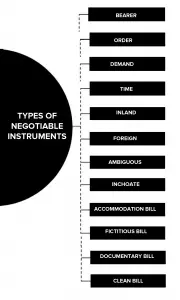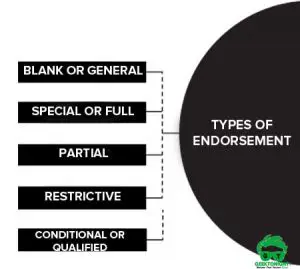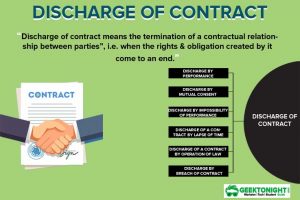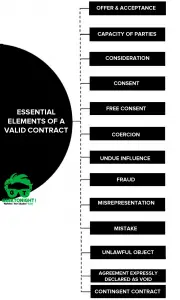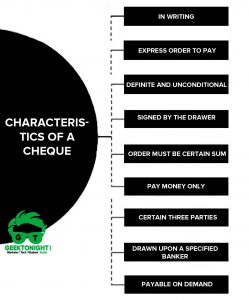Rights of Unpaid Seller
The seller of goods is deemed to be an ‘unpaid seller’ within the meaning of this Act —
(a) When the whole of the price has not been paid or tendered.
(b) When a bill of exchange or other negotiable instrument has been received as conditional payment, and the conditions on which it was received has not been fulfilled by reason of the dishonour of the instrument or otherwise.
– Sec. 45(1), The Sale of Goods Act, 1930
Table of Content
Who is unpaid seller?
The seller to whom the full price of the goods sold has not been paid the price is known as an unpaid seller.
A seller of goods is deemed to be unpaid in the following cases:
- The price must be due but not paid.
- A negotiable instrument like cheque and bill of exchange was received but the same has been dishonoured.
- The seller who has obtained a decree for the price of the goods will also be an unpaid seller if the decree has not been satisfied.
- When the seller has been paid a large amount but a small portion of the payment remains to be paid.
- When the price has been paid but some other expenses which were payable to the seller has not been paid.
- The seller must have an immediate right of action for the price.
Example: A sells goods worth Rs 1,00,000 to B on the credit of six months. After six months, B did not pay the price. A shall be regarded as an unpaid seller.
Rights of Unpaid Seller
An unpaid seller has the right against the goods as well as against the buyer.
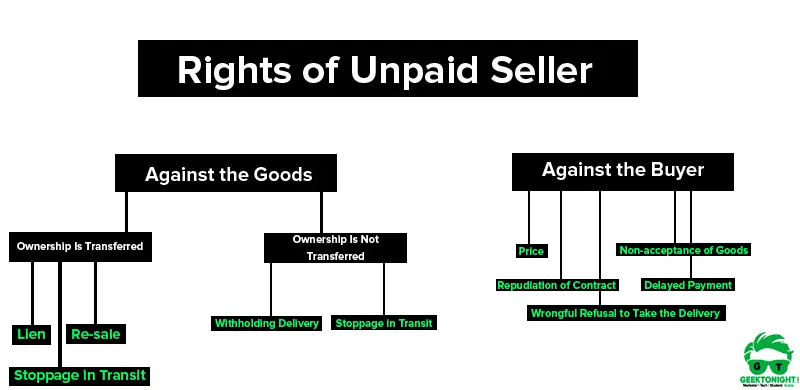
Rights of an unpaid seller against the goods
In some cases after the sale of goods the seller continues to have possession of the sold goods. At such times, an unpaid seller has certain rights against the goods.
These can be further studied under two heads;
Property has passed to the buyer
When the ownership of goods is transferred to the buyer, there are three rights of an unpaid seller. These are:
- Right of Lien – [Sections 47-49]
- Right of stoppage in transit – [Sections 50-52]
- Right of Re-sale
Property has not passed
When the ownership of goods is not transferred to the buyer, there are two rights of an unpaid seller. These are:
Rights of unpaid seller against the buyer
An unpaid seller has the following rights against the defaulting buyer:
- Suit for damages for non-delivery – [Sec. 56]
- Suit for price – [Sec. 55]
- Suit for specific performance
- Suit for breach of warranty
- Suit for damages for repudiation of contract before due date – [Sect. 60]
- Suit for interest – [Sec. 61]
Right of Lien
The Right of Lien means, the right to retain the possession of the goods until the charges or the full price has been paid.
This right is available to the unpaid seller where the goods have been transferred to the buyer. This is because lien depends on possession. Even if the seller has handed over the documents of title to the buyer, the lien is not affected.
“According to Section 47, the unpaid seller can exercise a lien, only when the following conditions are satisfied:
- Where the goods have been sold without stipulation as to credit; or
- Where the goods have been sold on credit but the term of credit has expired; or
- When the buyer has become insolvent.”
“If in such case where the unpaid seller has made only a part of the delivery of the goods he has the right of lien on the rest of the goods unless such part delivery has been made under an agreement to waive the lien” [Section 48].
Right of Stoppage in Transit
The right of stoppage in transit is an extension of the right of lien.
The right of lien is a right to retain the possession, whereas the right of stoppage in transit is a right to regain the possession.
The right of stoppage in transit can be exercised if the goods are in transit and the buyer has become insolvent in the meantime.
Conditions: unpaid Seller + possession of goods with carrier (independent) + insolvent buyer.
Duration of transit (Section 51)
The goods are stopped to be in transit in the following situations:
- As Seller’s Agent: In this case, the seller has a lien on the goods, so question of right of stoppage in transit does not arise.
- As Buyer’s Agent: In this case, the seller cannot exercise the right of stoppage in transit.
- In an Independent Capacity: In this case, sit from the time they are delivered to a carrier for the purpose of transmission to the buyer, until the buyer or his agent takes their delivery.
Right of Resale
Section 54 indicates that “the unpaid seller has the right of resale.“
When the seller uses his right of lien or stoppage in transit, the contract continues to remain in force and the buyer can claim delivery of goods by paying for the goods.
The seller is not expected to wait indefinitely for the buyer to make the payment. However, just because the seller is unpaid, the property in the goods cannot pass to the unpaid seller again. The buyer has the right to the property, and he has the option to pay the price and take the delivery of goods at any time.
Thus, under section 54, the seller has been given a limited right to resell the goods in certain circumstances.
The seller has the right to resell the goods in the following case:
- Where the goods are of perishable and will lose value in a short time:
the unpaid seller can resell the goods, in such a situation where buyer fails to pay the price within a reasonable time. - Where the unpaid seller has used his right of lien or of stoppage in transit and gives notice to the buyer of his decision to resell the goods:
the unpaid seller may, if the buyer does not pay or tender the price within a reasonable time, resell the goods.
Right to withhold Delivery of Goods
The right to withhold the delivery of goods means the seller refuses to deliver the goods to the buyer.
The following conditions must be satisfied to exercise the right to withhold the delivery of goods:
- The seller is an unpaid seller.
- The ownership of goods has not been passed.
The right to withhold the delivery of goods is in addition to the other remedies available to the seller.
Rights of unpaid seller against the buyer
The buyer has the following remedies against the seller:
Suit for damages for non-delivery
When the seller wrongfully neglects or refuses to deliver the goods to the buyer, the buyer may sue the seller for damages for non-delivery. This is in addition to the buyer’s right to recover the price, if already paid, in case of non-delivery.
Suit for price
Where the buyer has paid the price and the goods are not delivered to him, he can recover the amount paid.
Suit for specific performance
When the goods are specific or ascertained, a buyer may sue the seller for specific performance of the contract and compel him to deliver the same goods.
The court orders for specific performance only when the goods are specific or ascertained and an order for damages would not be an adequate remedy.
Suit for breach of warranty
Where there is a breach of warranty by the seller, or where the buyer elects or is compelled to treat the breach of condition as breach of warranty, the buyer cannot reject the goods.
The buyer may,
a) set up the breach of a warranty in extinction of the price payable by him, or
(b) sue the seller for damages for breach of warranty.
Suit for damages for repudiation of contract before due date
Where the seller repudiates the contract before the date of delivery, the buyer may adopt any of the following two courses of action:
- Damages for anticipatory breach: He may treat the contract as rescinded and sue the seller for damages.
- He may treat the contract as subsisting and wait till the date of delivery. The contract remains open at the risk and for the benefit of both the parties.
If the seller subsequently chooses to perform there shall be no damages otherwise he shall be liable to damages assessed according to the prices on the day stipulated for delivery.
Suit for interest
The buyer may recover such interest or special damages, as may be recoverable by law. He may also recover the money paid where the consideration for the payment of it has failed.
Business Law Notes
(Click on Topic to Read)
Business Law Book References
- Goel, P. K. (2006). “Business Law for Managers” Wiley
- Sheth, T. (2017). “Business Law” (2ed.) Pearson.
- Kuchhal. M.C. & Prakash. “Business Legislation for Management” (2ed.) Vikas Publishing.
FAQ
Business Law is also known as Commercial law or corporate law, is the body of law that applies to the rights, relations, and conduct of persons and businesses engaged in commerce, merchandising, trade, and sales.
Also Read:
1. Business Law Definition
2. Business Law Meaning
3. Business Law of India
The Indian Contract Act is divisible into two parts.
The first part (Section 1-75) deals with the general principles of the law of contract and therefore applies to all contracts irrespective of their nature.
The second part (Sections 124-238) deals with certain special kinds of contracts, namely contracts of Indemnity and Guarantee, Bailment, Pledge, and Agency.
Also Read:
1. Essential Elements of a Valid Contract
It is the duty of the seller to deliver the goods and of the buyer to accept and pay for them, in accordance with the terms of the contract of sale.
– Sec. 31, The Sale of Goods Act, 1930
Also Read:
1. Delivery of Goods
2. Types of Delivery
3. Rules for delivery of goods
Sales of Goods Act 1930 came into force on 1st July 1930. It extends to the whole of India. It does not affect rights, interests, obligations and titles acquired before the commencement of the Act. The Act deals with the sale but not with mortgage or pledge of the goods.
Read Complete:
1. Essentials of Valid Sales
2. How the Contract of Sale Comes About
3. Difference Between Sale And Agreement To Sell
The Sale of Goods Act, identifies the terms, “Conditions and Warranties” as being of a prime significance in a contract of sale.
Read Complete:
Implied Conditions
Implied Warranties
Negotiable Instruments Act 1881 ✅
Negotiation of an instrument is the process by which the ownership of an instrument is transferred from one person to another.
Read Complete:
1. Methods of the negotiation of instrument
2. Definition of Negotiable Instrument
3. Meaning of Negotiable Instrument
4. Characteristics of a Negotiable Instrument
5. Presumptions as to Negotiable Instruments
6. Classification of Negotiable Instruments
7. Types of Negotiable Instruments
Also Read:
Types of Endorsement
1. Blank or general endorsement
2. Special or full endorsement
3. Partial endorsement
4. Restrictive endorsement
The crossing of Cheque means that the specific cheque can only be deposited straightway into a bank account and cannot be instantly cashed by a bank or any credit institution.
Read Complete:
✅ Types of Cheque Crossing
1. General crossing
2. Special Crossing
3. Restrictive crossing
Promissory Note, on the other hand, is a promise to pay a certain amount of money within a stipulated period of time. And the promissory note is issued by the debtor.
Read Complete:
1. Characteristics of a Promissory Note
2. Bill of Exchange Parties
Bill of exchange is an instrument ordering the debtor to pay a certain amount within a stipulated period of time. Bill of exchange needs to be accepted in order to call it valid or applicable. And the bill of exchange is issued by the creditor.
Read Complete:
1. Example of Bill of Exchange
2. Features of Bill of Exchange
3. Bill of Exchange Parties
A cheque is a bill of exchange, drawn on a specified banker and it includes ‘the electronic image of truncated cheque’ and ‘a cheque in electronic form’.
Read Complete:
1. Characteristics of a Cheque
2. Parties of Cheque
3. Truncated Cheque
4. Cheque in electronic form
5. Presentment of truncated cheque
Go On, Share article with Friends
Did we miss something in Business Law Note? Come on! Tell us what you think about our article on Rights of Unpaid Seller |Lien, Resale, Stoppage in Transit, Withhold Delivery of Goods Business Law in the comments section.
Business Law Notes
(Click on Topic to Read)
- What is Business Law?
- Indian Contract Act 1872
- Essential Elements of a Valid Contract
- Types of Contract
- What is Discharge of Contract?
- Performance of Contract
- Sales of Goods Act 1930
- Goods & Price: Contract of Sale
- Conditions and Warranties
- Doctrine of Caveat Emptor
- Transfer of Property
- Rights of Unpaid Seller
- Negotiable Instruments Act 1881
- Types of Negotiable Instruments
- Types of Endorsement
- What is Promissory Note?
- What is Cheque?
- What is Crossing of Cheque?
- What is Bill of Exchange?
- What is Offer?
- Limited Liability Partnership Act 2008
- Memorandum of Association
- Articles of Association
- What is Director?
- Trade Unions Act, 1926
- Industrial Disputes Act 1947
- Employee State Insurance Act 1948
- Payment of Wages Act 1936
- Payment of Bonus Act 1965
- Labour Law in India
Business Law Notes
(Click on Topic to Read)
- What is Business Law?
- Indian Contract Act 1872
- Essential Elements of a Valid Contract
- Types of Contract
- What is Discharge of Contract?
- Performance of Contract
- Sales of Goods Act 1930
- Goods & Price: Contract of Sale
- Conditions and Warranties
- Doctrine of Caveat Emptor
- Transfer of Property
- Rights of Unpaid Seller
- Negotiable Instruments Act 1881
- Types of Negotiable Instruments
- Types of Endorsement
- What is Promissory Note?
- What is Cheque?
- What is Crossing of Cheque?
- What is Bill of Exchange?
- What is Offer?
- Limited Liability Partnership Act 2008
- Memorandum of Association
- Articles of Association
- What is Director?
- Trade Unions Act, 1926
- Industrial Disputes Act 1947
- Employee State Insurance Act 1948
- Payment of Wages Act 1936
- Payment of Bonus Act 1965
- Labour Law in India


